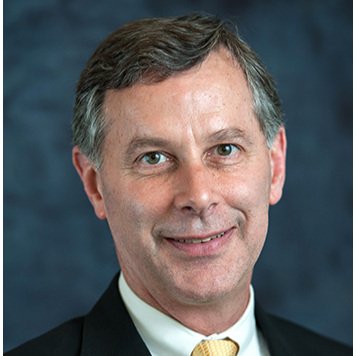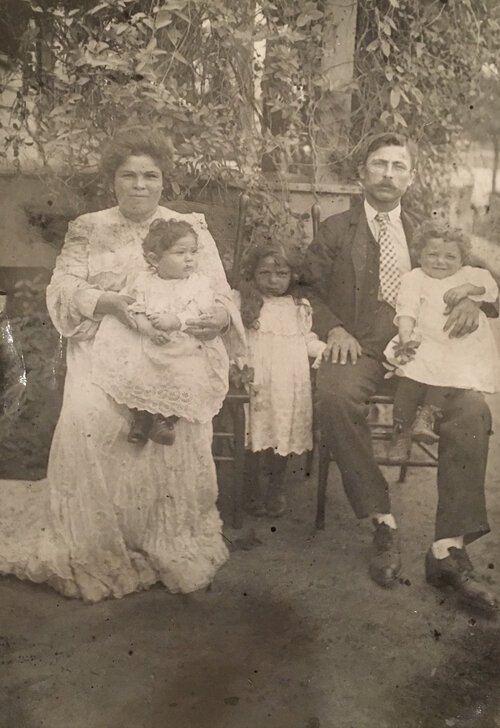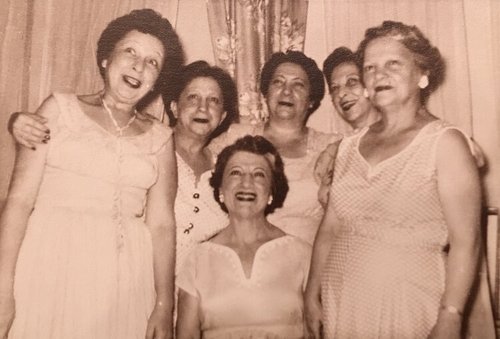Mississippians

Keith Fulcher lives in Cleveland, Mississippi, but was born in Vicksburg in 1961. His paternal great-grandfather was John George Nohra. Nohra and his wife Mary Nassar arrived in New Orleans in 1892, residing on Royal St. and on Dumaine St. in the French Quarter. Nohra is listed as a peddler in the 1910 US Census, but he later worked at Solari’s, a grocery store on Royal St. in New Orleans.
Fulcher’s maternal great-grandparents were Mike George Farris and Helen Moses Farris, from El Musif, Syria. They arrived in the United States around 1900, entering the country through El Paso-Juarez, Mexico. His maternal grandfather was Toefel George “T.G.” Nohra and his grandmother was Minnie Farris Nohra of Vicksburg.
Fulcher gained a deep appreciation of his Lebanese heritage from his grandmother, Minnie Farris, who encouraged him to embrace his Phoenician roots. Like so many other Lebanese men and women, Minnie Farris worked in a department store, Charles Abraham Department Store on Washington St. in Vicksburg, for much of her working life. Inspired by the stories his grandmother Minnie told him as a child, Fulcher is today teaching his daughter Marianna to prepare and appreciate the history behind Lebanese foods.
On February 10, 2011, Carolyn Ellis Staton created the Facebook group El Monsif to Mississippi, designed for descendants of nineteenth-century immigrants who came to Mississippi from El Monsif, Syria. Today, Fulcher administrates the group, which has grown to 1,360 members from places across Mississippi to Ohio, Pennsylvania, Australia, Mexico, and England.
Following a twenty-three-year career at Delta State University in Cleveland as head of its alumni foundation, Keith is the now the executive vice president of the Community Foundation of Northwest Mississippi.
This interview with Keith Fulcher took place in Marks, Mississippi, on December 6, 2017.
Audio clips
Many Lebanese Mississippians began their lives in America in New Orleans, and many others came through Texas border towns like El Paso.
Keith Fulcher’s understanding of why his ancestors came to the United States include both oppression by the Turkish government in Syria and the collapse of the silk trade there.
Despite bad memories and the lack of desire to return to Lebanon, most Lebanese clung to their Middle Eastern heritage, identifying more closely with where they had come from than with where they had chosen to live.
Food has been essentialto creating bonds and a sense of identity within Fulcher’s family.
In this last clip, Fulcher talks about the importance of the El Monsif to Mississippi Facebook group.
“My grandmother may have been in Jackson and worked in S.N. Thomas Company. She also went to Gulfport as a young girl and lived with the Catholic nuns. So I don’t want to leave that out, that part of the story about who influenced my Lebanese family. They were extremely poor, I mean just like most Lebanese immigrants were on the Farris side of the family. My grandmother went and lived with the Catholic nuns and went to school in Gulfport. So, if not for the Catholic nuns there is really no telling what my family life would be because [. . .] my grandfather T. G. Nohra really couldn’t provide for them financially, so I know that the Sisters of Mercy in Vicksburg, St. Francis, let my mother and her siblings go to school free, and they were selected usually every year to get a new pair of shoes from the Salvation Army. So, you know, that means a lot.”
—Keith Fulcher
Photos
Full sized images can be downloaded (see hyperlinks).

Fulcher’s great-grandparents emigrated from El Munsif.

Keith Fulcher’s mother’s mother (second from left) and her sisters (left to right): Bessie Middleton, Minnie Nohra, Maggie Coury, Rosa Jabour, Lillie Nicola, and Mamie Farris (seated).
